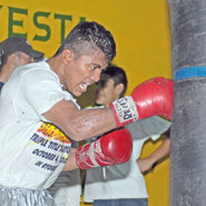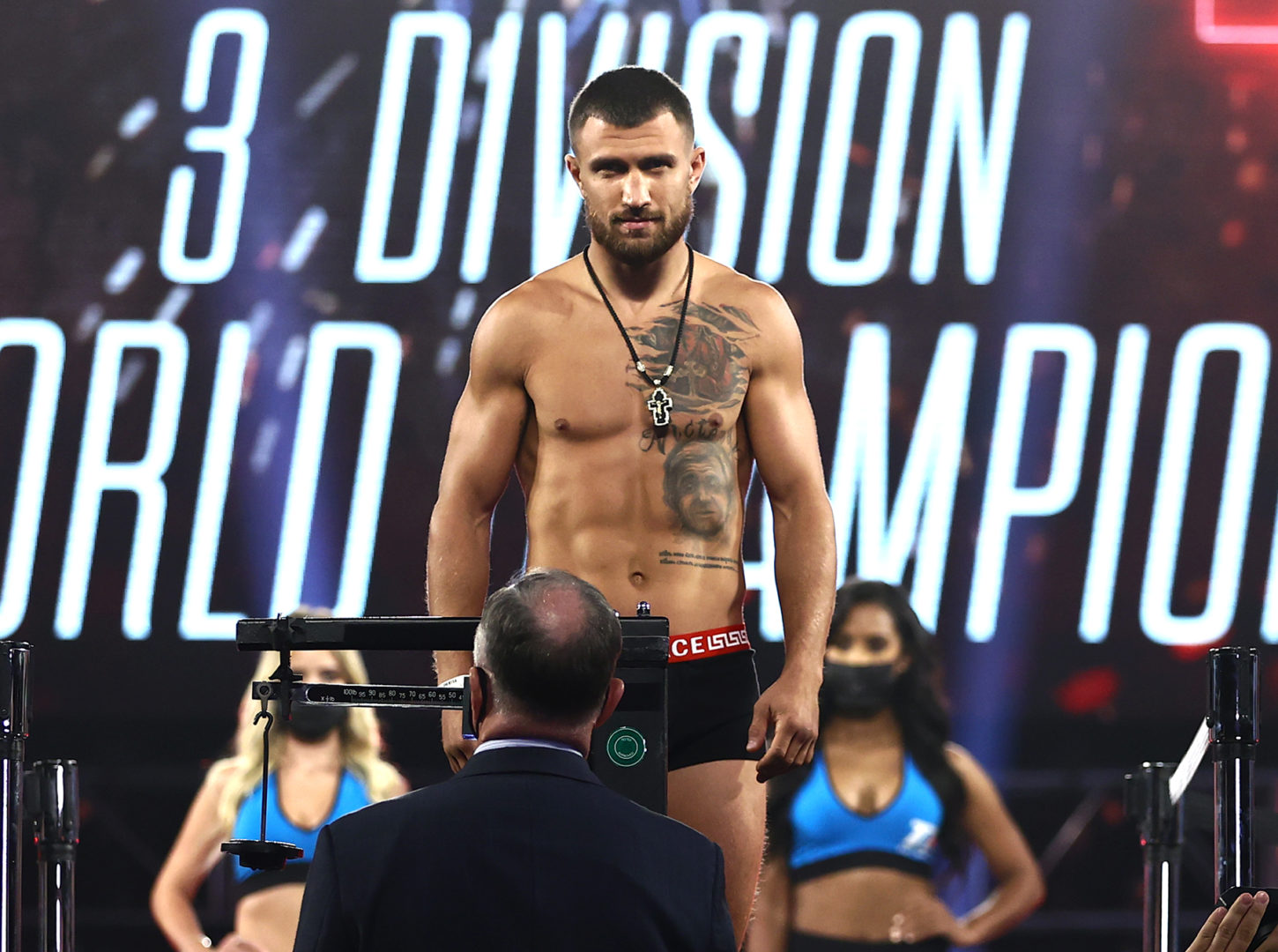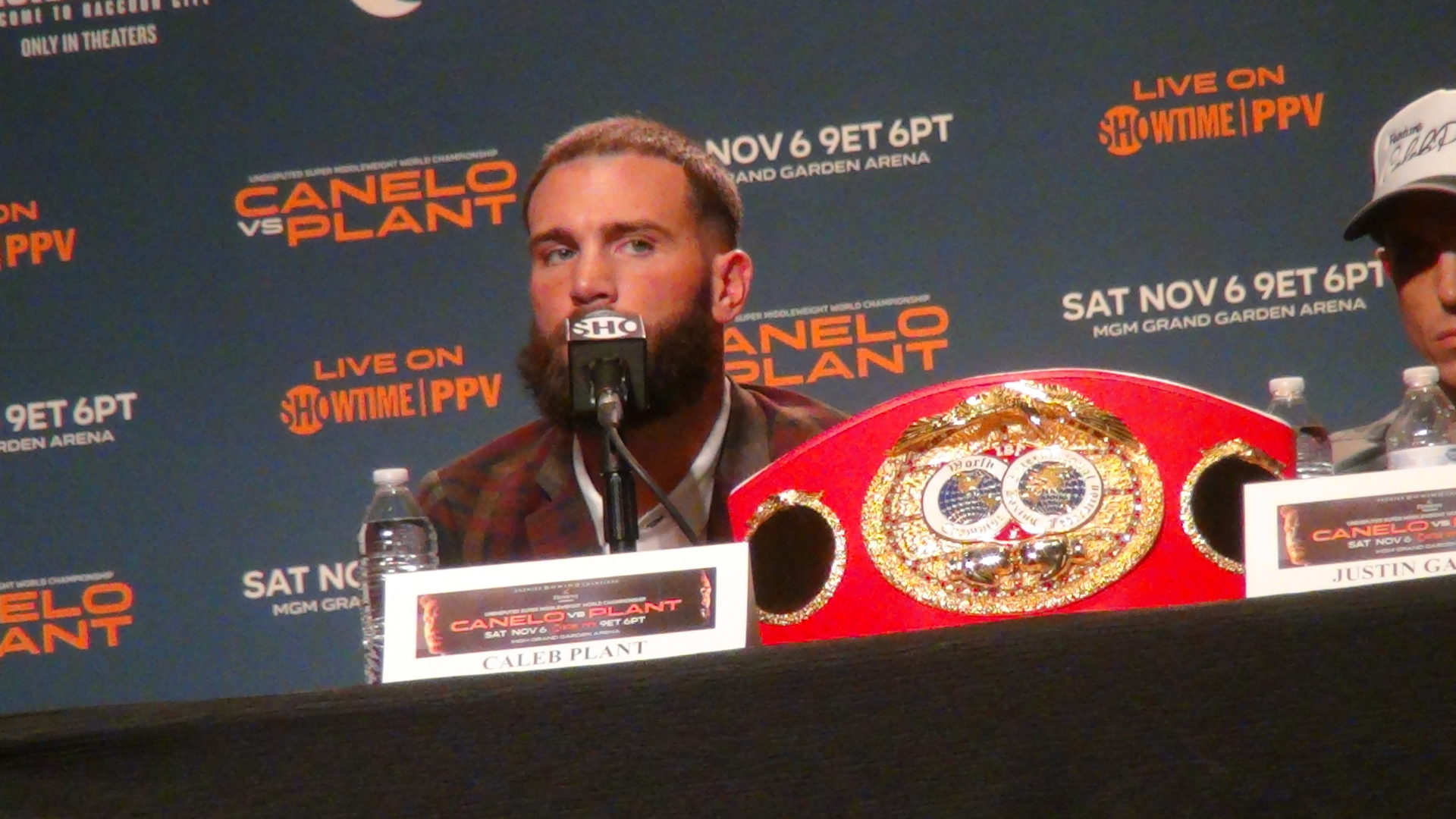BY Bart Barry-

Roman Gonzalez made the sixth and final defense of his light flyweight title on Nov. 17, 2012, at Los Angeles’ Sports Arena against Mexican Juan Francisco “El Gallo” Estrada, a defense difficult enough to be Chocolatito’s last at that weight one way or another. Gonzalez had by then grown too large to make 108 pounds effectively and very nearly gave away too many opening rounds to decision Estrada – who since losing to Gonzalez has gone 8-0 (4 KOs) and beaten Brian Viloria and stopped Giovani Segura and iced Hernan Marquez.
The unfailing benefit for the aficionado of watching a great fighter make matches against increasingly larger foes is the adjustments the great fighter necessarily makes because what works against a man smaller than you often fails against a man larger than you and very few professional athletes grow into new physiques immediately or properly. Exceptional in a host of other ways, in 2013 Gonzalez would prove himself every bit susceptible to this rule as another athlete.
When Chocolatito completed his light flyweight reign against El Gallo Estrada it was a pitched contest either man might’ve won by decision but Gonzalez won in some part for being champion – the fighter even impartial judges unconsciously watch more closely. Estrada chose a world title fight to make his 108-pound debut having made each of his career’s preceding 27 prizefights between 112 and 119 pounds and the advantage of size Estrada enjoyed was not lost on Chocolatito who had formed a habit – neither yet good nor bad – of alternately hanging his left hook and bringing it home lazily, relying on head movement to duck the rightcrosses his opponents never failed to throw. And when he didn’t respect an opponent’s power Chocolatito often let the triggered rightcross catch some of his left ear or crown, especially if an opponent’s partial contact would compromise that man’s balance or defensive positioning. (Later Chocolatito would leave his hook high and extended in an opponent’s chest-shoulder crook to reduce the other man’s leverage via range and impetus via jarring – as the opponent’s right shoulder invariably drove into his own face Chocolatito’s left glove.)
What Chocolatito learned against Rooster Estrada, though, were the perils of his casual approach against a man larger than him and necessarily accustomed to contact from men larger than Chocolatito, too. After throwing nary a punch in the opening 2 1/2 minutes of their tilt Chocolatito peppered Estrada with a left hook and a right cross that offered the Mexican a taste of the Nicaraguan’s punch but where previous opponents retreated hastily from such a sample The Rooster didn’t mind it enough to relent, or very much at all. TV Azteca’s commentating crew that included a legend named Chavez and a genius named Barrera performed ably its role of Mexican partisan, of course, and awarded Estrada each of the first four rounds but only a Nicaraguan, or an American judge named Druxman, could argue Chocolatito merited more than one of those opening four “episodios” – as Latin broadcasters call them.
The one early criticism the Mexican broadcasters did have for their countryman told: Where Chocolatito’s footwork was light and efficient, Estrada’s was busy, almost nervous. It was what wasted energy Mexican prizefighters abhor and did abhor openly, noticing Chocolatito took steps to move his opponent while Estrada took steps to settle himself. But it was a tiny detail till the later rounds when both men whacked one another and both men considered taking backwards steps and both men told themselves not to, and Estrada did anyway a few more times than Chocolatito. The decision got read unanimously in Chocolatito’s favor, then the feasting began.
Six months later Chocolatito nearly lost the diminutive “ito” from his nickname and became Chocolatón by gaining 8 1/4 pounds for a homecoming match with unheralded Colombian flyweight Ronald Barrera whom Gonzalez stopped quickly and looked pretty good while he did.
Four months after that and about four pounds lighter, once more in Managua, Chocolatito looked bad against an inexperienced Mexican flyweight named Francisco Rodriguez Jr. who was too inexperienced to know how pure and perfect his opponent was supposed to be and didn’t fight like he was against a talent rarefied as Chocolatito’s. Rodriguez saw a soft man in front of him struggling with balance and being surprised by that struggle with balance and punched Chocolatito a whole lot more than experience and competition anticipated he should. Chocolatito outweighed himself and when his left-hook leads missed he folded over his front knee like he hadn’t before. Class told eventually and Gonzalez’d’ve ground Rodriguez to his component parts but not nearly soon as the official line – Gonzalez TKO 7 – indicates: Nicaraguan referee Onofre Ramirez’s stoppage was so premature the voice of Nicaraguan boxing chanted “¡Se lo precipitó! ¡Se lo precipitó! ¡Se lo precipitó! (He rushed it!)”
Fairly and undoubtedly dubious about Gonzalez’s hometown preparatory rituals Chocolatito’s promoter Teiken wisely returned him to Japan and a journeyman opponent, Mexican Oscar Blanquet, for Gonzalez’s final match of 2013, a year after the Gallo Estrada ordeal. Against an opponent on a two-fight losing streak Gonzalez looked grimly determined but returned to form of a sort in walking through Blanquet before four minutes were up – but grim for the first time. At the match’s end Gonzalez was dignified, not joyful. Happiness had left his eyes but so had sluggishness left his legs, and Chocolatito was almost grown sufficiently into a flyweight’s body to challenge for a world title in a third weightclass.
Bart Barry can be reached via Twitter @bartbarry





















